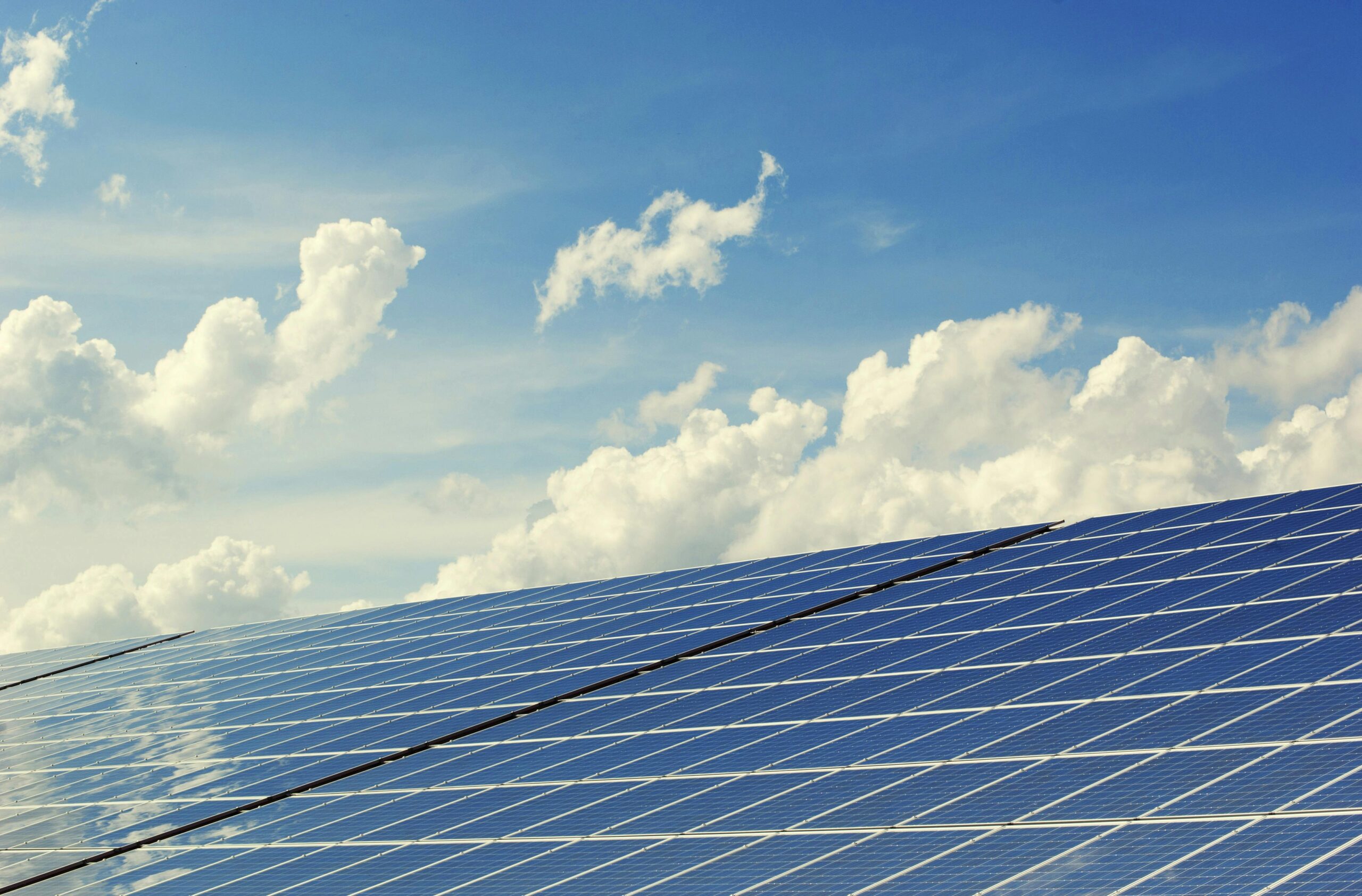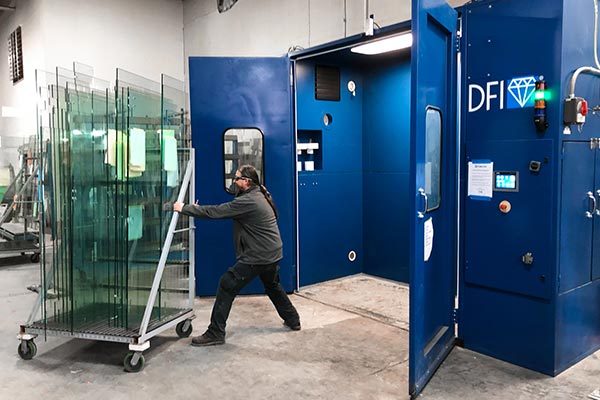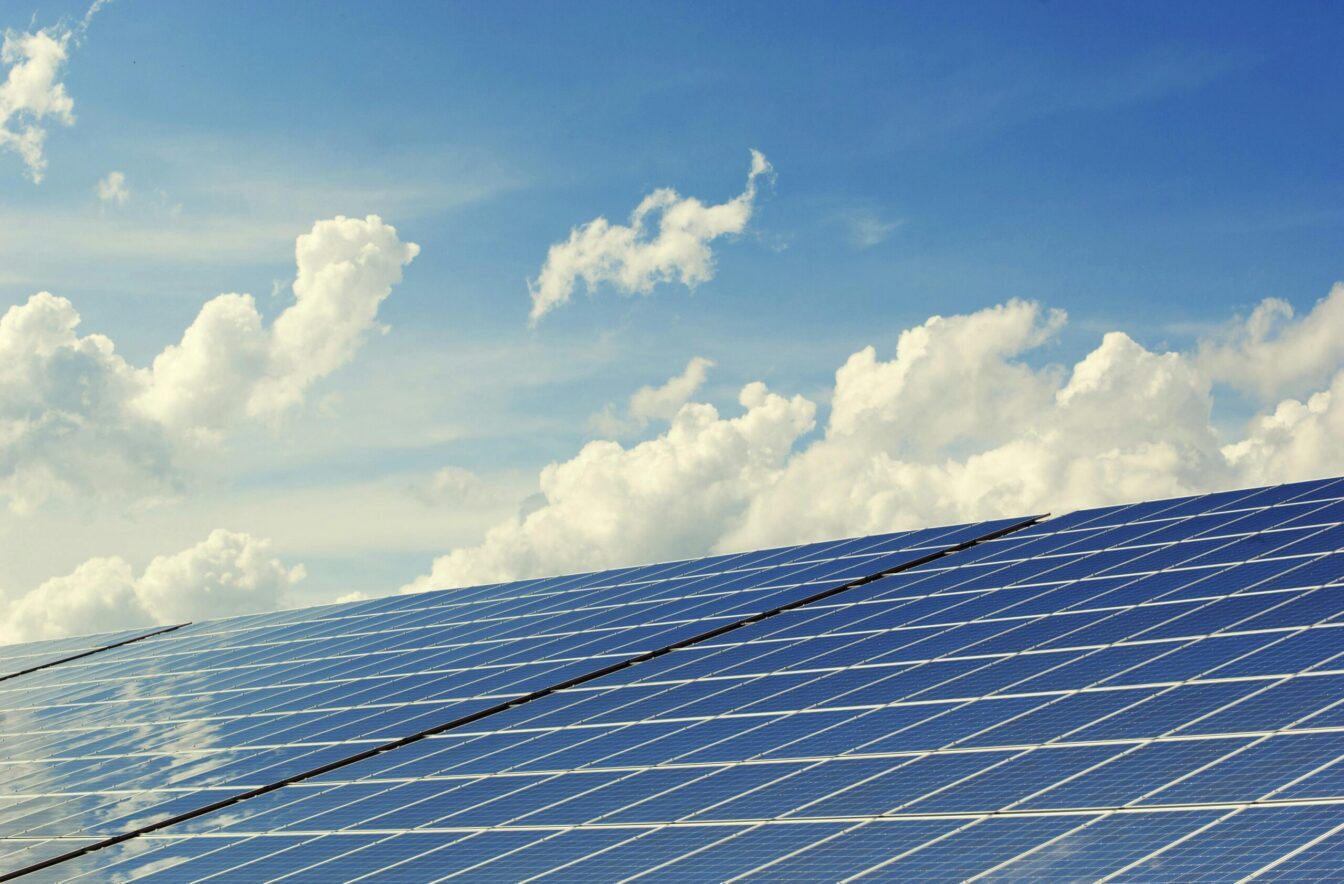INNOVATIVE TECHNOLOGIES: HOW ARE SOLAR PANELS PROTECTED?
Solar energy is becoming a cornerstone of renewable energy solutions, providing clean and sustainable power for homes, businesses, and industries worldwide. Its importance lies in its ability to significantly reduce carbon footprints while meeting the increasing global energy demands driven by population growth and industrial expansion.
But, as solar panels are constantly exposed to environmental elements, maintaining their efficiency and longevity can be challenging. This is where innovative coatings step in, offering a reliable solution to enhance the durability and performance of solar panels.
So, how are solar panels protected? Let’s explore the science and benefits of these advanced technologies.

UNDERSTANDING SOLAR PANEL COATINGS
Solar panel coatings are thin, transparent layers applied to the surface of photovoltaic (PV) cells, which are the components responsible for converting sunlight into electricity. These coatings are engineered to provide various protective and performance-enhancing properties.
Their primary functions include:
Reflectivity Minimization
Uncoated solar panels can reflect a significant portion of sunlight, reducing the amount of energy absorbed. Anti-reflective coatings (ARCs) are designed to minimize this reflectivity, ensuring more sunlight is captured and converted into electricity.
Environmental Damage Protection
Coatings act as a shield against harsh environmental conditions such as UV radiation, extreme temperatures, and precipitation. This protection extends the panels’ operational life and ensures consistent performance over time.
Dirt and Water Protection
Hydrophobic and oleophobic coatings prevent water, dirt, and debris from adhering to the surface. By keeping panels clean, these coatings enhance energy output while reducing the frequency of maintenance.
TYPES OF COATINGS USED FOR SOLAR PANELS
Applying specialized coatings provides key benefits for solar panels, such as improving energy efficiency, reducing maintenance needs, and extending their lifespan. Several types of coatings have been developed to achieve these outcomes, each tailored to specific performance needs.
Key examples include:
- Anti-Reflective Coatings
- Increase light transmission by reducing surface reflectivity.
- Boost overall energy conversion efficiency.
- Hydrophobic Coatings
- Repel water and minimize the accumulation of moisture or dirt.
- Help prevent streaking and staining that could impede energy absorption.
- Abrasion-Resistant Coatings
- Provide a tough layer of protection against physical wear from dust, sand, and other particles.
- Ensure the surface integrity of panels even in challenging environments like deserts.
- Self-Cleaning Coatings
- Utilize nanotechnology to create surfaces that repel dirt and facilitate easy cleaning.
- Reduce maintenance costs and downtime.
BENEFITS OF COATING TECHNOLOGIES FOR SOLAR PANELS
The application of these innovative coatings offers numerous advantages, such as:
- Enhanced Efficiency: Anti-reflective coatings ensure maximum sunlight absorption, directly increasing energy generation.
- Extended Longevity: Protective coatings shield panels from environmental and mechanical damage, increasing panel lifespan.
- Reduced Maintenance: Self-cleaning and dirt-repellent properties lower the need for manual cleaning and maintenance, saving time and resources.
- Lower Operating Costs: By improving efficiency and durability, while reducing maintenance requirements, coatings contribute to lower operational costs over time.
REAL-WORLD APPLICATIONS AND SUCCESS STORIES
Many solar energy providers have adopted coating technologies to improve their panel’s performance. For instance, in regions prone to dust storms, abrasion-resistant coatings have proven essential for maintaining operational efficiency. Likewise, self-cleaning coatings are frequently used in high-humidity areas, where algae and grime accumulation can hinder energy absorption.
FUTURE TRENDS IN SOLAR PANEL COATINGS
The ongoing advancements in materials science and nanotechnology are revolutionizing solar panel coatings, presenting a remarkable opportunity for innovation.
Researchers are crafting multifunctional coatings that combine anti-reflective, self-cleaning, and abrasion-resistant properties into one efficient layer.
Recent breakthroughs in nanostructured materials have shown great promise in enhancing solar panel efficiency and durability, especially in extreme weather conditions, which is ideal for even the harshest environments.
Furthermore, the development of eco-friendly and biodegradable coatings highlights a commitment to sustainability that goes beyond the energy generated by solar panels.
Despite these advancements, essential questions remain unaddressed in this rapidly evolving field. A critical area of exploration is the specific advancements in nanotechnology that will shape the future of solar panel coatings.
Continuous research into how nanostructured materials can enhance coating properties is crucial, as it could lead to groundbreaking innovations that significantly improve both efficiency and longevity.
Investigating how different types of coatings perform in various environmental conditions is also vital. For instance, do hydrophobic coatings outperform others in high humidity compared to arid settings?
It is equally important to consider any potential downsides or limitations of these advanced coatings, such as associated costs or environmental concerns regarding their manufacturing and disposal.
By addressing these issues, we can harness the full potential of these technologies and ensure a sustainable future for solar energy.
CONCLUSION
Protecting solar panels with innovative coatings is critical for maximizing performance and cost-effectiveness.
Diamon-Fusion® transforms ordinary solar panels into high-performing surfaces that stay protected and maximize energy efficiencies.
Our nano coating not only helps minimize energy losses, but also protects panels from environmental damage, and simplifies maintenance, creating a pathway to a more sustainable and efficient future.
Safeguard your solar energy investment with Diamon-Fusion® to maximize the efficiency of your solar panels for years to come. Contact us today or visit our website to read more.
Solar energy professionals: Stay ahead of the competition with Diamon-Fusion® coatings! Explore our cutting-edge coating technologies that enhance panel efficiency and durability. To learn more about how to partner with us, schedule a meeting here.

About Diamon-Fusion International
Diamon-Fusion International (DFI) is one of the largest hydrophobic coating suppliers in the world. The company specializes in the development of easy-to-clean, protective coatings, restoration products, and automated machinery for the glass industry, as well as other silica-based surfaces.
Social Media Channels
INNOVATIVE TECHNOLOGIES: HOW ARE SOLAR PANELS PROTECTED?
Solar energy is becoming a cornerstone of renewable energy solutions, providing clean and sustainable power for homes, businesses, and industries worldwide. Its importance lies in its ability to significantly reduce carbon footprints while meeting the increasing global energy demands driven by population growth and industrial expansion.
But, as solar panels are constantly exposed to environmental elements, maintaining their efficiency and longevity can be challenging. This is where innovative coatings step in, offering a reliable solution to enhance the durability and performance of solar panels.
So, how are solar panels protected? Let’s explore the science and benefits of these advanced technologies.

UNDERSTANDING SOLAR PANEL COATINGS
Solar panel coatings are thin, transparent layers applied to the surface of photovoltaic (PV) cells, which are the components responsible for converting sunlight into electricity. These coatings are engineered to provide various protective and performance-enhancing properties.
Their primary functions include:
Reflectivity Minimization
Uncoated solar panels can reflect a significant portion of sunlight, reducing the amount of energy absorbed. Anti-reflective coatings (ARCs) are designed to minimize this reflectivity, ensuring more sunlight is captured and converted into electricity.
Environmental Damage Protection
Coatings act as a shield against harsh environmental conditions such as UV radiation, extreme temperatures, and precipitation. This protection extends the panels’ operational life and ensures consistent performance over time.
Dirt and Water Protection
Hydrophobic and oleophobic coatings prevent water, dirt, and debris from adhering to the surface. By keeping panels clean, these coatings enhance energy output while reducing the frequency of maintenance.
TYPES OF COATINGS USED FOR SOLAR PANELS
Applying specialized coatings provides key benefits for solar panels, such as improving energy efficiency, reducing maintenance needs, and extending their lifespan. Several types of coatings have been developed to achieve these outcomes, each tailored to specific performance needs.
Key examples include:
- Anti-Reflective Coatings
- Increase light transmission by reducing surface reflectivity.
- Boost overall energy conversion efficiency.
- Hydrophobic Coatings
- Repel water and minimize the accumulation of moisture or dirt.
- Help prevent streaking and staining that could impede energy absorption.
- Abrasion-Resistant Coatings
- Provide a tough layer of protection against physical wear from dust, sand, and other particles.
- Ensure the surface integrity of panels even in challenging environments like deserts.
- Self-Cleaning Coatings
- Utilize nanotechnology to create surfaces that repel dirt and facilitate easy cleaning.
- Reduce maintenance costs and downtime.
BENEFITS OF COATING TECHNOLOGIES FOR SOLAR PANELS
The application of these innovative coatings offers numerous advantages, such as:
- Enhanced Efficiency: Anti-reflective coatings ensure maximum sunlight absorption, directly increasing energy generation.|
- Extended Longevity: Protective coatings shield panels from environmental and mechanical damage, increasing panel lifespan.
- Reduced Maintenance: Self-cleaning and dirt-repellent properties lower the need for manual cleaning and maintenance, saving time and resources.
- Lower Operating Costs: By improving efficiency and durability while reducing maintenance requirements, coatings contribute to lower operational costs over time.
REAL-WORLD APPLICATIONS AND SUCCESS STORIES
Many solar energy providers have adopted coating technologies to improve their panels’ performance. For instance, in regions prone to dust storms, abrasion-resistant coatings have proven essential for maintaining operational efficiency. Likewise, self-cleaning coatings are frequently used in high-humidity areas, where algae and grime accumulation can hinder energy absorption.
FUTURE TRENDS IN SOLAR PANEL COATINGS
The ongoing advancements in materials science and nanotechnology are revolutionizing solar panel coatings, presenting a remarkable opportunity for innovation.
Researchers are crafting multifunctional coatings that combine anti-reflective, self-cleaning, and abrasion-resistant properties into one efficient layer.
Recent breakthroughs in nanostructured materials have shown great promise in enhancing solar panel efficiency and durability, especially in extreme weather conditions, which is ideal for even the harshest environments.
Furthermore, the development of eco-friendly and biodegradable coatings highlights a commitment to sustainability that goes beyond the energy generated by solar panels.
Despite these advancements, essential questions remain unaddressed in this rapidly evolving field. A critical area of exploration is the specific advancements in nanotechnology that will shape the future of solar panel coatings.
Continuous research into how nanostructured materials can enhance coating properties is crucial, as it could lead to groundbreaking innovations that significantly improve both efficiency and longevity.
Investigating how different types of coatings perform in various environmental conditions is also vital. For instance, do hydrophobic coatings outperform others in high humidity compared to arid settings?
It is equally important to consider any potential downsides or limitations of these advanced coatings, such as associated costs or environmental concerns regarding their manufacturing and disposal.
By addressing these issues, we can harness the full potential of these technologies and ensure a sustainable future for solar energy.
Protecting solar panels with innovative coatings is critical for maximizing performance and cost-effectiveness.
Diamon-Fusion® transforms ordinary solar panels into high-performing surfaces that stay protected and maximize energy efficiencies.
Our nano coating not only helps minimize energy losses but also protects panels from environmental damage and simplifies maintenance, creating a pathway to a more sustainable and efficient future.
Safeguard your solar energy investment with Diamon-Fusion® to maximize the efficiency of your solar panels for years to come. Contact us today or visit our website to read more.
Solar energy professionals: Stay ahead of the competition with Diamon-Fusion® coatings! Explore our cutting-edge coating technologies that enhance panel efficiency and durability. To learn more about how to partner with us, schedule a meeting here.
READY TO PROTECT YOUR SHOWER GLASS?
Diamon-Fusion® is available through a network of Certified Diamon-Fusion® Dealers throughout the country who are professionally trained and equipped to protect your shower doors. For new shower door applications, please use the Online Dealer Locator below. For existing glass applications, please visit www.shopdfi.com.
About Diamon-Fusion International
Diamon-Fusion International (DFI) is one of the largest hydrophobic coating suppliers in the world. The company specializes in the development of easy-to-clean, protective coatings, restoration products, and automated machinery for the glass industry, as well as other silica-based surfaces.
